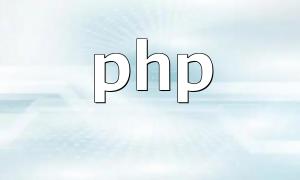Since the release of PHP7, the language has undergone major improvements in performance, syntax, and security. Compared with PHP5, PHP7 not only executes faster but also introduces stricter type checking and a more modern structure, offering developers a smoother and more efficient experience.
Performance is one of the most significant upgrades in PHP7. With the new Zend Engine, PHP7 executes code much faster and consumes less memory. In practice, applications running on PHP7 can be up to twice as fast as those on PHP5, providing quicker response times and better scalability.
PHP7 introduces a strict mode that enforces stricter type checking. Developers can enable this mode to ensure function parameters and return values strictly match the declared types. This helps prevent subtle type conversion bugs and improves code reliability.
PHP7 allows developers to explicitly declare parameter and return types for functions and methods, such as string, int, float, and bool. This makes the code more readable and maintainable.
declare(strict_types=1);
function add(int $a, int $b): int {
return $a + $b;
}
In the example above, if the wrong data type is passed to the function, PHP will throw an error, ensuring type safety at runtime.
PHP7 introduces several new functions and classes that simplify development. For example, the filter_var() function helps validate and sanitize user input, and the DateTime class makes handling dates and times more efficient. These new features allow developers to achieve more with fewer lines of code.
Error handling in PHP7 has been greatly improved. Instead of fatal errors that stop execution, many errors are now handled using exceptions (Exception and Error classes). This provides better debugging control and cleaner code management.
try {
// Code that might fail
} catch (Error $e) {
echo 'Error occurred: ' . $e->getMessage();
}
To keep the language clean and secure, PHP7 has deprecated several outdated and unsafe features from PHP5. Removing these legacy elements encourages developers to adopt more modern and secure programming practices.
In summary, PHP7 offers major improvements over PHP5 in terms of execution speed, syntax, and error handling. It enables developers to write faster, safer, and more maintainable code. For projects still using PHP5, upgrading to PHP7 is a smart move to enhance both performance and security.









